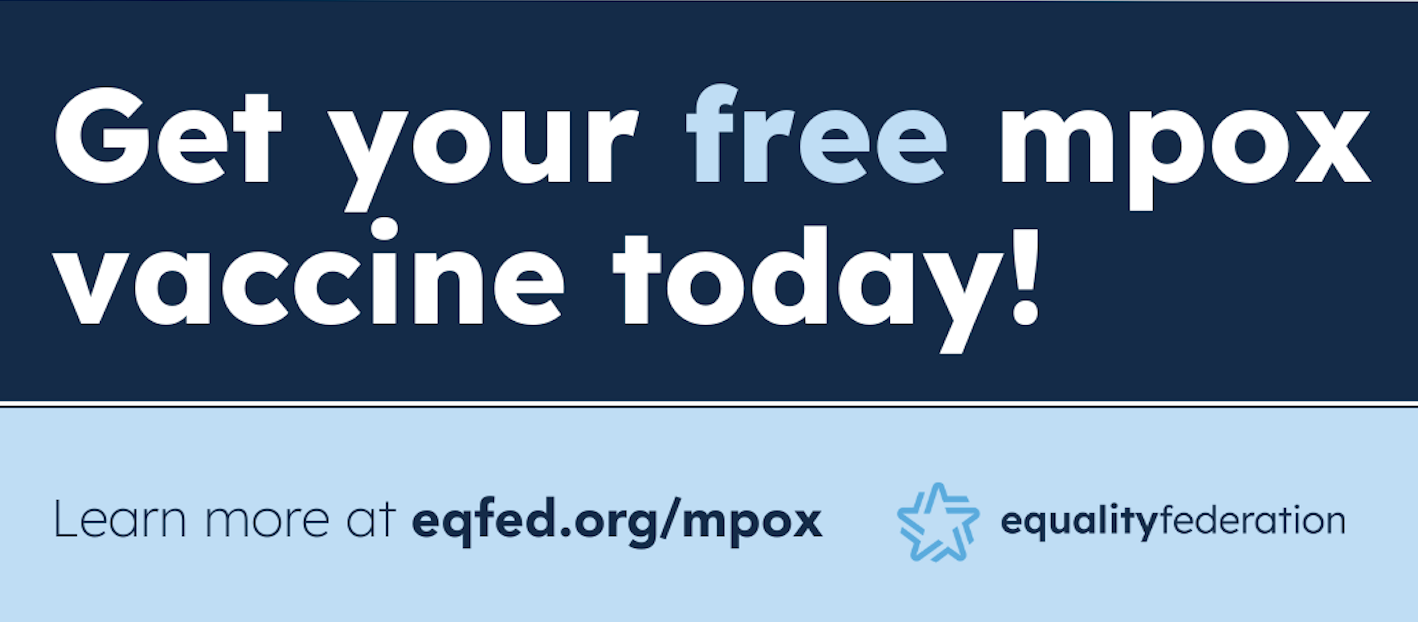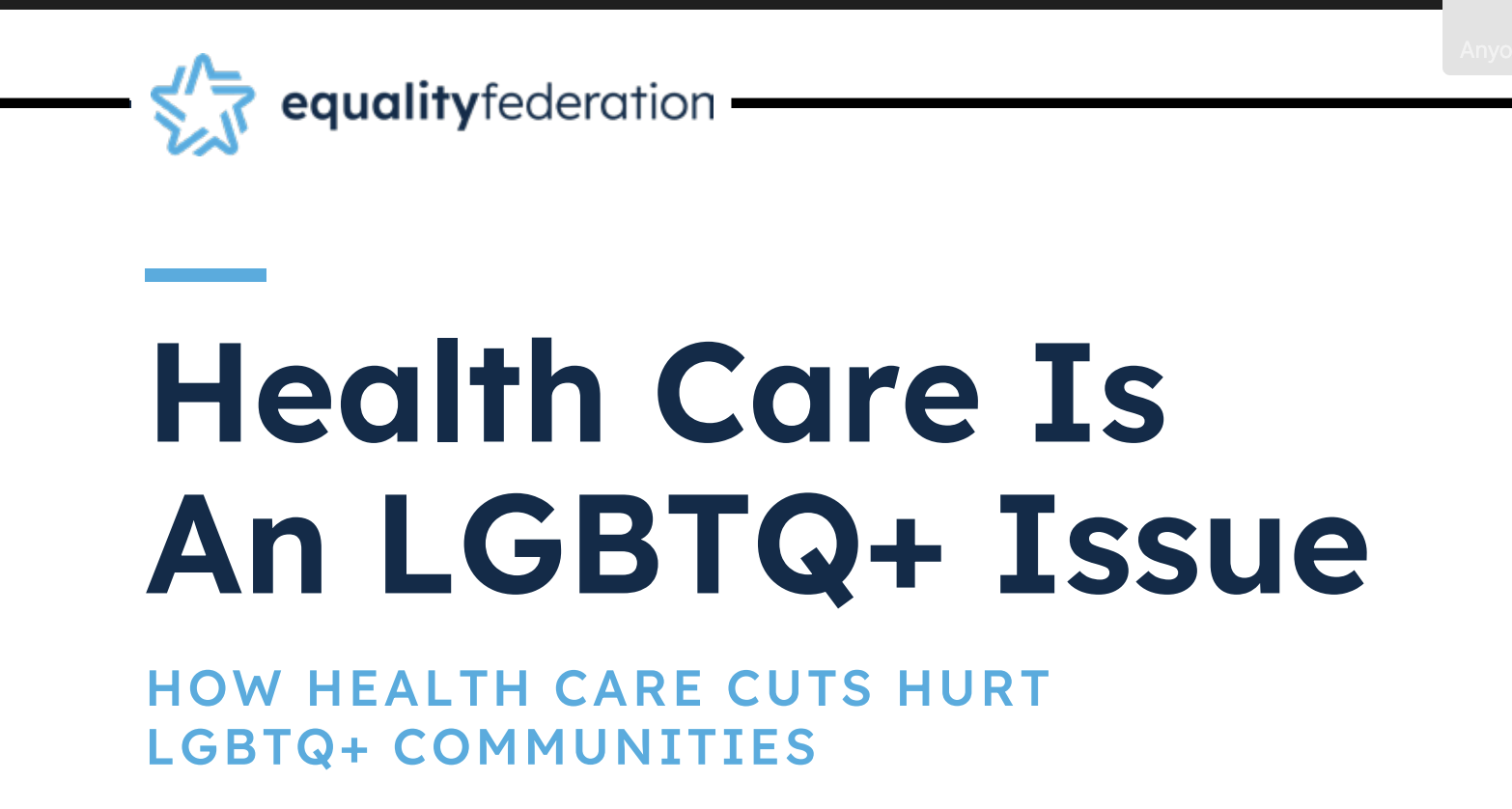The 3 Million+ LGBTQ People in Rural America...

Groundbreaking New Report Details Unique Challenges, Rewards for An Estimated Three Million or More LGBT People Who Call Rural America Home
Rural Life Amplifies Impact of Both Acceptance and Discrimination, But Millions of Rural LGBT People Have Few Legal Protections
(April 3, 2019) Des Moines, IA—Popular culture images of lesbian, gay, bisexual, and transgender (LGBT) people suggest that most LGBT people live in cities or on the coasts. Yet an estimated 2.9 – 3.8 million LGBT people call rural America home. Today, the Movement Advancement Project (MAP) released a new report, Where We Call Home: LGBT People in Rural America, which examines the structural differences in rural life and their unique impact on LGBT people in rural areas, who are both more vulnerable to discrimination and less able to respond to its harmful effects.
Among other challenges, rural LGBT people are less likely to have explicit nondiscrimination protections, are more likely to live in areas with religious exemption laws that may allow service providers to discriminate, and have fewer alternatives when facing discrimination, as detailed in the new report released today. Where We Call Home: LGBT People in Rural America is released in partnership with the Equality Federation, the National Black Justice Coalition, and the National Center for Lesbian Rights.
“LGBT people are a fundamental part of the fabric of rural communities—they are teachers and ministers, small business owners and community organizers, farmers and construction workers,” said Ineke Mushovic, executive director of the Movement Advancement Project (MAP). “LGBT people live in rural areas for the same reasons as other people, such as love of family, the strength of tight-knit rural communities, and connection to the land. However, the social and political landscape of rural America means that rural LGBT people are more vulnerable to discrimination. This is why nondiscrimination laws are vital, so that rural LGBT people don’t have to choose between basic protections and the place they call home.”
Although LGBT people in rural areas face many of the same challenges as their neighbors, they experience different consequences, and the many structural challenges of living in rural communities can often amplify LGBT people’s experiences of both acceptance and rejection. The report findings include that:
- The interconnectedness of rural communities leads to ripple effects across many aspects of life. For example, if a person is excluded from their faith community for being gay, they may have a difficult time at work or finding a job, because their church members may also be their coworkers or potential employers. Conversely, if a rural church community or employer takes a supportive stand for local LGBT residents, that support can also ripple outward to other areas of life. By contrast, in a bigger city, a person’s church and work life are likely more separated.
- When LGBT people (and particularly LGBT people of color) in rural areas do face discrimination, they may have no or fewer alternatives to find a restaurant, doctor, job, home, faith community, and more. Amplifying this problem, more service providers in rural areas are religiously-affiliated and are covered under religious exemption laws that may allow them to discriminate, even when providing public services.
- LGBT people in rural areas are more vulnerable to discrimination. Additionally, rural areas are more likely to lack explicit nondiscrimination protections for LGBT people and more likely to have laws allowing religious service providers to turn LGBT people away. Although the majority of rural residents support nondiscrimination protections for LGBT people, rural residents are on average less supportive than urban residents, and less likely to know someone who is LGBT.
Click here to view this as an infographic.
“This report raises awareness about the millions of LGBT people living in rural communities across the country. Their stories, their joys, and their challenges need to be shared as we work to advance equality for all in city councils, county commissions, in state legislatures, and with federal lawmakers who represent rural LGBT people,” said Rebecca Issacs, executive director of the Equality Federation. “State equality groups are working to grow public understanding of the unique experiences LGBT people face, and advocating for local, state, and federal policy change that will allow everyone, regardless of whether they live in Driggs, Idaho or Thurmond, West Virginia, to participate fully in American life.”
“Too often rural America is portrayed as white and working class compared to the diversity of our country’s urban centers,” said David Johns, executive director of the National Black Justice Coalition. “What this report lifts up is the fact that, contrary to popular narratives, lesbian, gay, bisexual, transgender, and queer and same gender loving (LGBTQ/SGL) people from all backgrounds live in small towns, suburbs, and big cities alike. LGBTQ/SGL people of color have been, and always will be, integral parts of rural America. And in rural communities, LGBTQ/SGL people of color face the compounding effects of discrimination and bias for being both LGBTQ/SGL and a person of color in 2019. That’s why protections for communities of color, women, and the LGBTQ/SGL community are needed to advance opportunity for all—this is especially true for Black people who continue to be disproportionately impacted by race, gender, sexual identity, gender orientation, and location in America.”
“This report puts in stark relief the need for explicit protections to ensure that everyone is treated fairly. In rural areas, many key services—including health screenings, job training, food banks, homeless shelters, domestic violence shelters, child welfare services, and more—are provided by religiously-affiliated organizations,” said Shannon Minter, legal director of the National Center for Lesbian Rights. “And these institutions—even those which are taxpayer funded—are increasingly permitted by federal and state religious exemptions to opt-out of following existing nondiscrimination laws and are able to choose who to serve and how to serve them. NCLR’s commitment to engage rural communities, to represent them in court, and to advocate on Capitol Hill has never been stronger nor more necessary.”
Where We Call Home: LGBT People in Rural America concludes with recommendations for policymakers, service providers, educators, employers, and healthcare providers, including passing LGBT-inclusive nondiscrimination protections at the federal, state, and local level, while also pursuing important state and local progress such as resisting or repealing religious exemption laws, expanding LGBT competency training for service providers, and more. Additionally, addressing the broad structural challenges facing rural communities (e.g., improved health care access, internet access, and more) will also improve the experiences of LGBT people in rural areas—and all residents of rural America.
# # #
About MAP: MAP’s mission is to provide independent and rigorous research, insight, and communications that help speed equality and opportunity for all. MAP works to ensure that all people have a fair chance to pursue health and happiness, earn a living, take care of the ones they love, be safe in their communities, and participate in civic life. www.lgbtmap.org
About NCLR: The National Center for Lesbian Rights (NCLR) was the first national LGBTQ legal organization founded by women and brings a fierce, longstanding commitment to racial and economic justice and our community’s most vulnerable. Since 1977, NCLR has been at the forefront of advancing the civil and human rights of our full LGBTQ community and their families through impact litigation, public policy, and public education. Decades ago, NCLR led the way by establishing the first LGBTQ Immigration Project, Transgender Rights Project, Youth Project, Elder Law Project, and began working to end conversion therapy through what is now the Born Perfect campaign. NCLR also hosts regular Rural Pride convenings around the country, which provides a forum to focus on the unique needs of the rural LGBTQ community. www.nclrights.org
About NBJC: The National Black Justice Coalition (NBJC) NBJC is a civil rights organization dedicated to the empowerment of Black lesbian, gay, bisexual, transgender, queer and same gender loving (LGBTQ/SGL) people, including people living with HIV/AIDS. NBJC’s mission is to end racism, homophobia, and LGBTQ/SGL bias and stigma. As America’s leading national Black LGBTQ/SGL civil rights organization focused on federal public policy, NBJC has accepted the charge to lead Black families in strengthening the bonds and bridging the gaps between the movements for racial justice and LGBTQ/SGL equality. www.nbjc.org
About the Equality Federation: Equality Federation is the movement builder and strategic partner to state-based organizations advocating for LGBTQ people. From Equality Florida to Freedom Oklahoma to Basic Rights Oregon, we amplify the power of the state-based LGBTQ movement. www.equalityfederation.org

%20(2).jpg)



.jpg)
.jpg)
.jpg)
.jpg)
.jpg)
